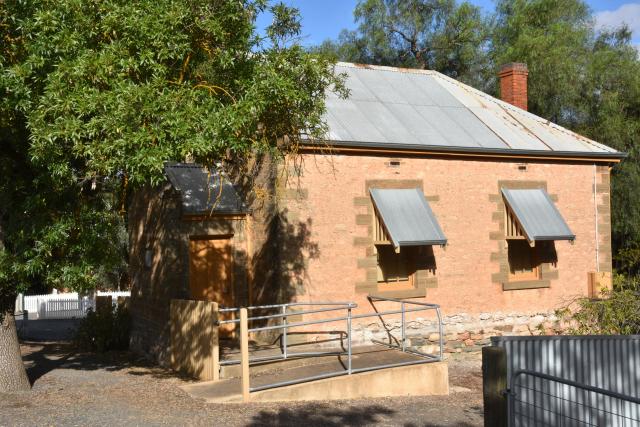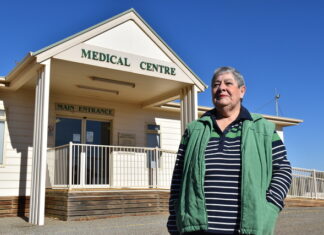
The Auburn community has made its opinions heard regarding funding from the town’s local infrastructure.
At last week’s Clare and Gilberty Valleys Council meeting, Auburn Community District Committee (ACDC) Rhonda Seymour was granted a deputation to discuss the ongoing issue of the distribution of money acquired from the sale of the Auburn RSL building.
The community has previously requested a portion of the funding be directed towards essential works needed to maintain and upgrade the historic Auburn library building, something Ms Seymour says is required before the community take responsibility for the future of the site.
“It is crucial to note that we as representatives of the Auburn community have not had the chance for a formal consultation regarding the council policy on the distribution of funds arising from the sale of community assets,” Ms Seymour said.
“Specifically we are requesting the allocation of $150,000 of the sale to support ACDC in undertaking the maintenance.
“These funds are urgently needed to address building code compliance requirements, installation of toilet facilities, wastewater system and fire safety measures before any further usage can be authorised.”
ACDC last month asked for a delay in the community land revocation process which would see the building gifted to the community in “as is” condition.
Ms Seymour indicated the urgency with which maintenance needs to be addressed, with issues including holes, roof rust, unsecured vents, weathering of mortar and stone, and rising damp.
“Time is of the essence in this matter, the Auburn library has remained unused since 2020, with no repair from the council since well before that time,” she said.
“Every passing day increases the risk of further deterioration and escalates the cost of repairs to bring the building up to standard.
“While there are other funding avenues available, she noted, “these options involve significant time commitments and delays, and will not address our urgent needs promptly.”
The policy to either sell or gift deteriorating community built assets without additional repair work was developed in response to a report that came before the previous sitting council.
“The point of doing it was that we were not going to spend money on them,” chief executive officer Dr Helen Macdonald said.
“It was equated to the same as if we sold the building. The process was to address the fact we have enormous amounts of underutilised buildings which councils need to spend lots of money on if they are not to close up and fall apart.”
Some council members felt this policy was rewarding council for neglecting their built assets over an extended period of time.
“Community forefathers built these assets, maintained them, and this council has now taken on ownership of that, collected depreciation over years, spent little money on many of those structures,” councillor Ann Alder said.
“Now we expect the community to take over a building behind the 8 ball? It is almost an insult to the community to ask them to take on a building so depreciated in its structure.”
No formal policy has yet been developed by council regarding the distribution of funds from the sale of community assets such as Auburn RSL, with this being the first such case since the built asset review, however $20,000 of the proceeds have been slated to go to the Clare and Auburn RSL group, who had previously occupied the building and benefitted from leasing of the facilities.
Ms Seymour requested peak bodies be involved in the decision making process around the policy development.
“We would like to be involved in the process of organising how to distribute funds,” she said.
“As peak bodies, we have strong connections within our communities and an understanding of what other organisations within our community could benefit.
“Working forwards we feel peak body collaboration in this process has been overlooked and we can bring valued insight in both the policy making process and decision making.
“The building started off as council chambers, as a community building, continued in this function as a library, and we believe that the Auburn community supports us in our endeavours to have it remain a community building.”
Mayor Allan Aughey noted the Auburn community have a fantastic track record with what they have achieved to date.
“I’m sure this council will be able to accommodate them in a fair and reasonable way,” he said.
“We do need some consistency across the board so that others don’t feel they have been disfavoured or treated maliciously as a result, but that is not the intent of this council nor these deliberations. I will leave it with administration to pursue and it will be dealt with in due process.”





